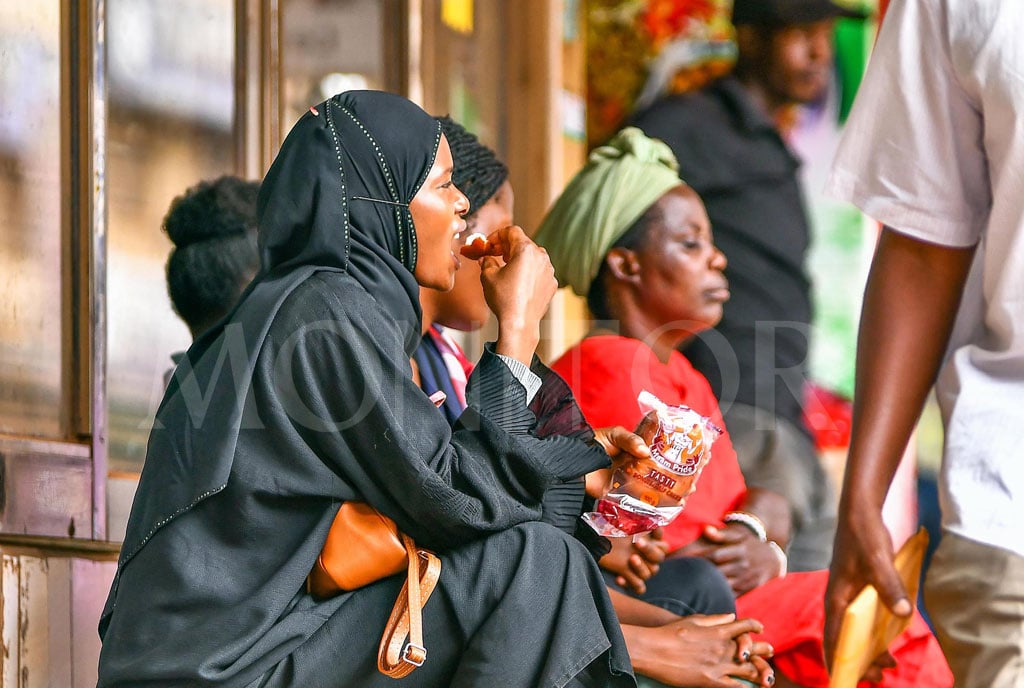Understanding the Rite of Ordination and priesthood

Part of the 35 priests that were ordained at Lubaga Cathedral. PHOTO/STEPHEN OTAGE.
What you need to know:
- FYI. Last week at Lubaga Cathedral, 35 men received the sacrament of Ordination.
Notwithstanding challenges ushered in by the Covid-19, last Saturday Lubaga Cathedral witnessed the priestly ordination of 35 young men. We congratulate them and thank their parents.
Christian priesthood is a mystery, pertaining to God. It is rooted in Exodus 19:6, when God promised the Israelites would be a royal priesthood and a holy nation if they kept His covenant. Hebrews 5-10, presents Jesus as the High Priest of the New People of God. By virtue of the Church’s union with Christ, 1 Peter 2:9 declares, “But you are a chosen race, a royal priesthood, a holy nation, a people set apart.”
Two natures of priesthood are being implied here: the common and the ministerial. The common priesthood, is by virtue of the sacrament of Baptism, when one is anointed with holy oil. The ministerial priesthood occurs with the sacrament of Order, when one’s hands are anointed, to anoint others and preside over the offering of the one sacrifice of Christ. In the ordained priesthood is vested the ministry of leadership of the Church, in the common priesthood is vested the dynamism of the Church; “the salt of the earth and light of the world” (Matthew 5:13-16).
First Order
During His public ministry, Christ called twelve men from among many followers, whom He later ordained priests. This is was the implication the commanded “Do this in memory of me” following the institution of the Eucharistic sacrifice, at the Last Supper (Luke 22:19). Whereas the common priesthood ministers to the world, the ministerial priesthood ministers within the Church.
Basing on Biblical texts like 1 Timothy 1:2, the Apostolic Tradition calls priests “fathers” or “presbyters” or “elders”. This follows the Jewish tradition, when the Passover sacrifice was presided over by the father of the family (Exodus 12:21). The New Testament priest is the father of God’s new family, the Church. He offers the new “Lamb of God, who takes the sins of the world” (John 1:29). In 1 Corinthians 10:16-22, the Sacrifice is clearly understood as the one of Calvary, made present and offered to the Father for our salvation .
What the Bible says
According to Hebrews 5:1-10, the priest is someone chosen by God from among those who belong to Christ; to be, for the rest of his life, an official witness to Christ for the Church and to the world. As Christ sacrificed Himself in surrender to His father and love of humanity, so does His priest. He expresses this surrender through celibacy and obedience to the bishop.
So the ordained priesthood is a charism or a gift from God, conferred upon a man by the laying on of hands by the bishop (1 Tim 4:14). It is personal, in that it is possessed by individual persons.
When the priests’ hands are anointed with oil, he becomes another Christ. When the priest pronounces the tremendous words of Consecration, during Mass, he reaches up into the heavens, brings Christ down from His throne, and places Him upon the altar to be offered up again as the victim for the sins of man.
Mark 2: 1-12 shows that only God has the power to forgive sins, and that Jesus had the authority to forgive sins. In John 20:21, Jesus gave that same power to his apostles and priests. In the sacrament of confession, the sinner’s soul is washed clean, and renewed in Christ.
Christ’s priests are also ordained to proclaim God’s Word, inviting people to conversion and to holiness (1 Corinthians 9:16).
In the Apostolic Tradition, bishops are the successors of the apostles. And the Bishops in their local churches are dependent on the Pope, the supreme head of the Church (Matthew 16:18). Priestly authority, hence, rests chiefly with the bishops, while priests and deacons serve as their assistants, co-workers or helpers.
Did you know?
The priesthood is the office of the ministers of religion, who have been ordained with the Holy orders of the Catholic Church.
Technically, bishops and deacons are priestly orders as well, however in layman’s terms priest refers only to presbyters and pastors (parish priests).





